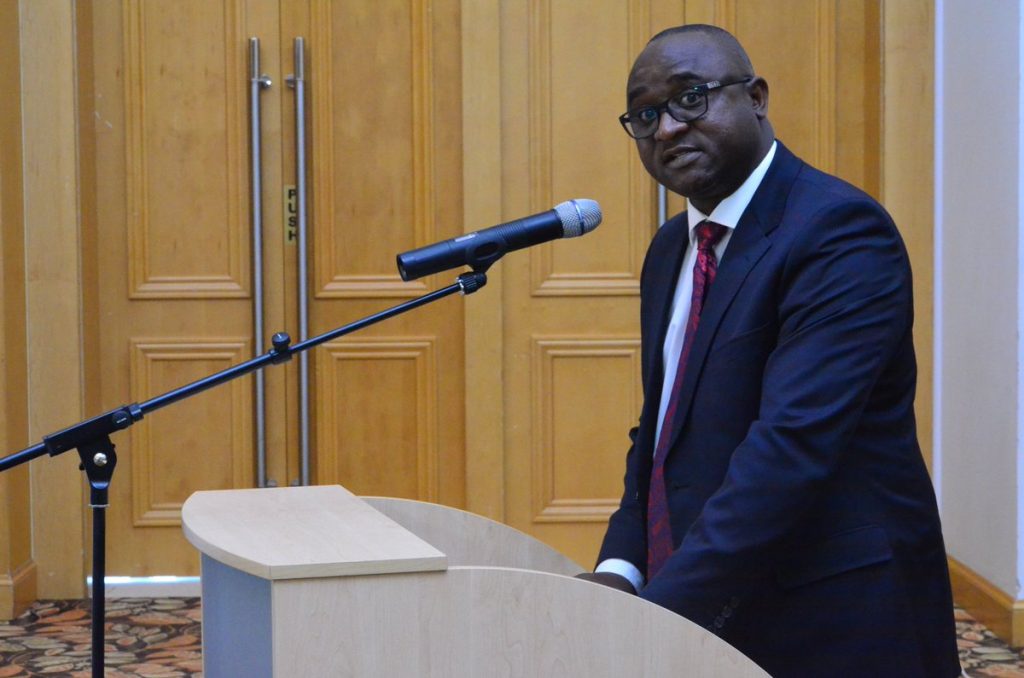ACB changes tune on Kapondamgaga
The Anti-Corruption Bureau (ACB) says it let State Residences chief of staff Prince Kapondamgaga off the hook because there was “insufficient evidence” that he allegedly received bribes from United Kingdom-based businessperson Zuneth Sattar.
The position contradicts an earlier statement the graft-busting agency released in July this year indicating that Kapondamgaga was cleared after signing a restitution agreement with the ACB and was also recorded a statement.

But in a response to Youth and Society (YAS) dated August 28 2023, which The Nation has seen, under the subject ‘Re: Request for information: The restitution agreement with and closure of investigations against Mr Prince Kapondamgaga’, the ACB said apart from using its prosecutorial discretion, it also “borrowed principles articulated in the ‘Director of Public Prosecution’s Guidelines on Plea Discussions’, albeit with necessary modifications as these are not wholly applicable”.
The response, signed by the bureau’s information officer Grace Banda, also disclosed that Kapondamgaga agreed to pay back by September 30 2023 about K70.1 million he received from Sattar.
YAS requested the information under the Access to Information (ATI) law.
Reacting to the bureau’s position, Malawi Law Society (MLS) president Patrick Mpaka, in a written response, said the new development confirmed the ACB’s shortage of legal basis in the management of the Kapondamgaga issue.
He referred The Nation to an analysis MLS made soon after the ACB released its press statement in July to the effect that it was not going to lay criminal charges against Kapondamgaga. In the analysis, MLS argued that the cited plea directions were not law and that it was illegal to apply them.
Reads the analysis in part: “There is no law that gives the ACB prosecutorial discretion to accept restitution without initiation of criminal proceedings. Section 10 of the Corrupt Practices Act does not give it ‘prosecutorial discretion’.”
The analysis further observed that the decisions and actions taken in the matter of Kapondamgaga did not comply with the law, adding that they were, therefore, unconstitutional and illegal.
MLS said the Corrupt Practices Act (CPA) was the only law applicable in the matter of Kapondamgaga and that the CPA does not authorise amnesty.
It reads: “It [the CPA] does not authorise the bureau to decline, or not to proceed with, a prosecution. It does authorise plea bargaining even at an informal level. It does authorise the bureau to decline or curtail an investigation unless the complaint is trivial, frivolous or vexatious.”
YAS executive director Charles Kajoloweka, in a written response on Tuesday, described the ACB’s move on Kapondamgaga as a “political acquittal”.
He said: “We are at pains to appreciate the justification for discontinuance of the case. The reason given by ACB is nothing but a desperate effort to conceal justice and accountability. It is a political acquittal. Our legal team will closely review the response and advice on the next steps.”
ACB principal public relations officer Egrita Ndala was yet to respond to our questionnaire on Tuesday.
But in a statement issued in July, she said the bureau’s investigations established that Kapondamgaga received a Mercedes Benz S-Class 350d and other gifts from Sattar.
Restitution refers to a claim or remedy requiring a defendant to give up benefits wrongfully obtained.
The ACB also recommended the Office of the President and Cabinet to immediately review the Malawi Public Service Regulations in accordance with President Lazarus Chakwera’s directive on June 21 2022.
The presidential directive pertained to the suspension of Kapondamgaga at the time pending ACB’s investigations.
Kapondamgaga was suspended on July 21 2022 following an ACB report that implicated him in alleged corrupt dealings with Sattar, who is accused of allegedly bribing government officials to influence award of public contracts to his firms.
He was suspended alongside former Public Procurement and Disposal of Assets Authority board chairperson John Suzi-Banda who resigned two weeks later.
The report also implicated Vice-President Saulos Chilima, former Inspector General of Police George Kainja and 53 other public officers.
While Kainja was fired, Chakwera withheld Chilima’s delegated powers pending the ACB’s investigations.





